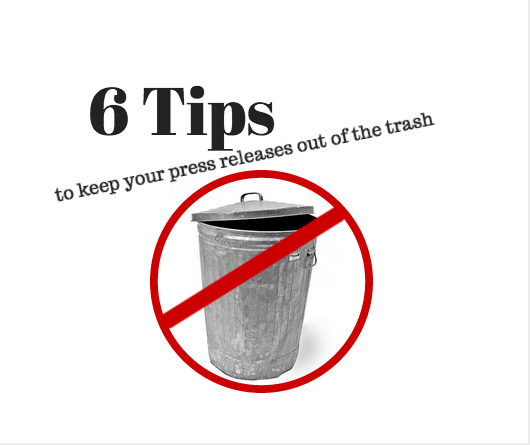by Doug Gruse
In the digital age, sending your message out to the media is easier than ever.
Getting the media to read your message and take action, however, is another story.
As a journalist who has worked for newspapers for more than 15 years, I’ve seen a huge increase in the number of emails and press releases sent to me on a daily basis. In any given week, I sort through hundreds of messages in my inbox.
Most of them get deleted. Some are obvious spam messages, but many get sent to the recycle bin for other reasons. As a writer working on tight deadlines, I don’t have a lot of time to sort through confusing correspondence.
Here are six tips to help you write emails that won’t end up in the garbage can:
- Be personal. It’s easy to shoot off a blanket email to 200 strangers, but these “blind” mailings rarely get results. Try to find a contact at each media outlet, and establish a relationship with the person. Call and have an initial phone conversation, and then ask if the writer minds if you use them as a future resource. Down the line, when you do send that person an email, he or she will be more likely to read it and feel more compelled to help get out your message.
- Be specific. Your correspondence needs to include all the important details. Read through the email to make sure it answers the following questions: Who? What? When? Where? Why? And How? Include your contact information in case any clarifications are required.
- Be concise. You are writing an email, not “War and Peace.” Try to keep your pitch as brief as possible. One paragraph is better than one page.
- Don’t be a poet. I’ve already mentioned that you are not trying to be a novelist. Similarly, don’t add flowery words to try to impress. Keep the adjectives to a minimum, and stick to language that is used in common speech.
- Don’t skimp on the subject line. Never send a journalist an email labeled “press release.” Be specific. When I’m scanning a folder with 85 emails all with a “press release” in the subject line, yours won’t stand out.
- Follow up. Never be afraid to call your contacts on the phone to make sure they received your email. As a journalist, it’s easy for me to forget about something that is buried in my inbox. When a person calls me on the phone, I take notice. It’s much harder to say “no” to a pleasant voice seeking help.

